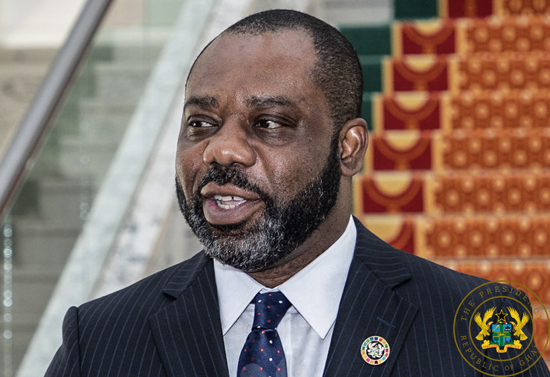
Education in retrospect
In September 2019, when the academic year began, it took off smoothly albeit challenges with the placement of first year students under the Computerised School Selections and Placement System (CSSPS).
All went well in the country until March 11, 2020, when Ghana recorded the first case of the coronavirus (COVID-19) pandemic; the academic year was never to be, as government on March 15, 2020 ordered the closure of all educational institutions in the country in line with measures to contain the pandemic.
Closure of schools
Initially, the closure did not include final year students of the senior and junior high schools but following appeals by civil society organisations, teacher unions and parents over the safety of the students and staff of the schools, the management of the country’s education finally ordered the final year students to also go home.
The closure marked a new chapter in the history of the educational sector in the country, where management of education had to adopt new ways to ensure that the schoolchildren were still in learning mode. Since then, it has been 10 months when the academic calendar was interrupted and thrown out of gear, while students were sent home.
Distance learning
Upon the directive by President Nana Addo Dankwa Akufo-Addo, the Ministry of Education was tasked to roll out online programmes and distance learning in collaboration with the Ministry of Communications for the purposes of learning by students from upper primary up to the university level.
Consequently, a team was constituted comprising the Ministry of Education, the National Council for Tertiary Education, the University of Ghana the, University of Education, Winneba, the Ghana Education Service, the Centre for National Distance Learning and Open Schooling, the Ghana Library Authority and the National Council for Curriculum and Assessment to come up with the solutions in the short, medium and long terms.
The team was also tasked to bring out solutions, as well as conceptualise effective and feasible solutions for the short, medium and long terms. They were to explore and ensure its appropriate content and resources for both pre-tertiary and tertiary institution and that explained the need to be guided and guard what was broadcast to Ghanaian students.
The virtual classes christened the Ghana Learning TV eventually started on April 3, 2020 with the senior high schools (SHSs) and later extended to the junior high school (JHS) students and upper primary pupils and on June 15, 2020, the Ministry of Education with the generous support from the United States Agency for International Development (USAID) and the Ghana Broadcasting Corporation (GBC) launched the radio version.
Dubbed the “Ghana Learning Radio Reading Programme”, the programme, which caters for school pupils between Basic One and Basic Three, aimed at teaching children how to read while at home.
So far, all the 11 GES-approved Ghanaian language (Asante Twi, Akuapem Twi, Dagaare, Dagbani, Dangme, Ewe, Fante, Ga, Gonja, Kasem, Nzema) radio lessons are now airing mainly on Mondays and Wednesdays from 5 p.m. to 6 p.m.
Gradual reopening
Then as part of the gradual easing of the restrictions, the President directed all final year university students to resume lectures on June 15, 2020, while final year SHS students and second year students under the Gold Track resumed classes on June 22. JHS final year students also reported to school on June 29, 2020.
Prior to the reopening, all schools, both public and private, were disinfected to make the school environment more convenient for congenial teaching and learning.
This was to enable the final year students to write their terminal examinations, while the gold track students completed their first semester. The SHS final year students, who were the first batch of the government’s Free SHS products, wrote their examinations between July 20, 2020 and September 5, 2020, while the JHS final years wrote theirs from September 14 to 18, 2020. The WASSCE was released on November 13, 2020, while the BECE was released on December 18, 2020.
As part of the protocols, all educational activities such as sporting activities, social events and other academic activities had been banned.
Since the lockdown, the educational system in the country had never been same with most institutions, especially the tertiary ones resorting to a blend of face-to-face and online academic work.
New laws
During the year under review, a number of the Bills developed by the Ministry of Education since 2017 were passed into law by Parliament. These included four of them covering the establishment of four public universities while the rest are the Education Regulatory Bodies' Act, the Ghana Library Service Act and the Institute of Chartered Accountants Ghana Act.
The four new public universities established by the Act of Parliament are the S. D. Dombo University of Business and Integrated Development Studies Act 2019, Act 1001, the C. K. Tedam University of Technology and Applied Science, Navrongo Act 2019, Act 1000, the Akenten Appiah-Menkah University of Skills Training and Entrepreneurial Development Act, 2019 Act 1026, and the Ghana Communication Technology University Act, 2020 Act 1022.
